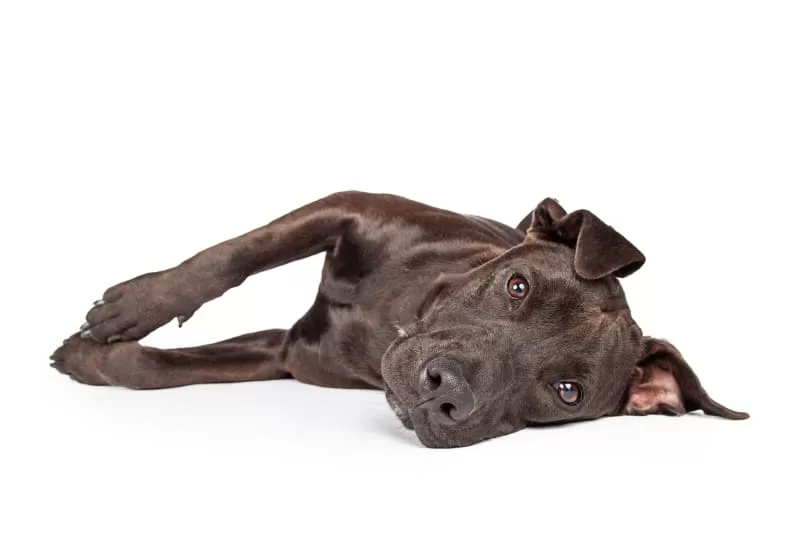Diarrhea is an unprepossessing dilemma generally observed in doggies, which may reflect a greater health plight. Consequently, pet possessors must be conversant with the sources, warnings, and restorative selections for hound diarrhea to proffer the most optimal guardianship for their amiable chums.
Table of Contents
Causes of Canine Diarrhea
Canine diarrhea is typically caused by an infection or ingestion of something that does not agree with their digestive system. Parasites, viruses, bacterial infections, bad dietary choices, food allergies or intolerances, and accidentally swallowing an object could cause your pet discomfort.
We sympathize with them and hope they feel better soon. Stressful situations can also trigger bouts of diarrhea in dogs, as can certain medications and vaccinations.
Dogs may experience several forms of loose stool, such as intestinal blockages, pancreatic or liver ailments, particular cancers, or endocrine issues like diabetes and Cushing’s Syndrome. All of these can be distressing for your furry friend.
Other causes may be the result of toxicity from plants or chemicals, certain medicinal treatments, or parasitic issues such as roundworms, hookworms, whipworms, and tapeworms. We sympathize with anyone struggling with a health issue caused in this way.
Symptoms of Canine Diarrhea

The clearest sign of canine diarrhea is watery, liquid stool. Unfortunately, these conditions can often be difficult to explain and draining. Show your pet how much you care for them by getting them the proper help they need. Be sure to give them plenty of love and tenderness along the way.
Give your furry friend plenty of extra love and care during this difficult period. Show your pet you care for and love them by seeking medical assistance. Let’s be sure your furry family member is feeling their best.
Also Read: Can Dogs Be Retarded Or Mentally Challenged?
In addition to the previous manifestations, other doggy diarrhea portents may involve excessive flatulence, slime in the dung, and laboring or soreness when excreting. It is imperative to take cognizance of any alterations in your quadruped’s deportment and deem them significant.
If your 4-legged companion displays any signs of sickness, quickly liaising with your veterinarian is the wisest course of action.
Treatment Options for Canine Diarrhea
Several remedial possibilities exist contingent on the source of your animal’s looseness of bowels. If the reason is a dietary dishonor or sustenance hypersensitivity/affectability, exchanging for an elite eating regimen can help settle the issue. Your vet may recommend a deworming medication if parasites are answerable for the loose bowels.
Antimicrobials or antivirals may be endorsed if bacterial or viral contamination causes loose bowels. Moreover, specific enhancements may be suggested to help assuage an aggravated digestive tract and reestablish adjustment to the gut microbiome.
Preventing Canine Diarrhea
The preeminent means of barring canine loose bowels is to vouchsafe that your hirsute associate has admittance to spotless liquid and that their fare is composed of supreme-degree chow with pertinent dietary fiber and albumen. It is also vital to eavesdrop on any variances in their menus or circumstances that could actuate raids of looseness and elude them if conceivable.
Likewise, daily veterinarian jaunts can help apprehend fundamental health matters before they get into dangerous predicaments.
Furthermore, guaranteeing that your pet’s habitat is toxin-free is necessary. This includes curbing contact with droppings from other creatures, ensuring grasslands and flowerbeds are untainted by corrosive plants, and shunning any places where chemicals have been deployed.
Moreover, offering daily activities to your pet can reinforce their intestinal health and decrease worry levels. Ultimately, keeping your pet’s immunizations current can obstruct the expansion of parasites and other ailments that have the perdition of producing loose bowels.
Breed of dogs that are more prone to Diarrhea
| Breed | Percentage of dogs affected | Precautions |
|---|---|---|
| Greyhound | 30% | Avoid sudden changes in diet, feed a bland diet if diarrhea occurs, and monitor your dog for signs of dehydration |
| Labrador Retriever | 25% | Avoid feeding table scraps, feed a high-quality diet, and monitor your dog for signs of food allergies |
| Miniature Schnauzer | 25% | Avoid feeding fatty foods, feed a highly digestible diet, and monitor your dog for signs of pancreatitis |
| Yorkshire Terrier | 20% | Avoid feeding high-fiber foods, feed a bland diet if diarrhea occurs, and monitor your dog for signs of allergies |
| Shetland Sheepdog | 20% | Avoid feeding too much food, feed a highly digestible diet, and monitor your dog for signs of bloat |
| Boston Terrier | 15% | Avoid feeding too much food, feed a highly digestible diet, and monitor your dog for signs of bloat |
| Boxer | 15% | Avoid feeding too much food, feed a highly digestible diet, and monitor your dog for signs of bloat |
| Soft Coated Wheaten Terrier | 10% | Avoid feeding high-fiber foods, feed a bland diet if diarrhea occurs, and monitor your dog for signs of allergies |
| Pug | 10% | Avoid feeding too much food, feed a highly digestible diet, and monitor your dog for signs of bloat |
Conclusion
Canine diarrhea can be a sign of an inexplicable medical condition and should always be treated with caution by puppy keepers. By being conscious of the sources, signals, and remedy prospects for canine diarrhea, puppy keepers can present their woolly cronies with the greatest good protection and make sure their pup stays upbeat for numerous years.
After the preventive norms above, such as furnishing good nourishment and regular travail, puppy keepers can aid in lessening the danger of their pup’s bad luck of suffering from diarrhea. Also, periodic vet visits can help capture any inexplicable wellness matters previously that have become serious predicaments.
Puppy keepers can guarantee their canine chum is healthy and delighted for numerous years by taking these steps.

